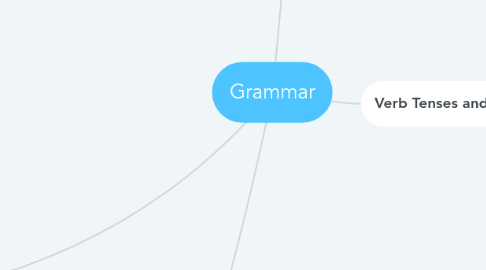
1. Articles and Prepositions
1.1. Definition: Indefinite article( a , an ), Definite Article.( the ) It can not be used by itself, it can only be used to explain the person or thing.
1.1.1. Example1: There is an oven outside of the house.
1.1.2. Example2: Daniel is holding a book in his hand.
1.1.3. Example3: The light was too bright.
1.2. Definition: A preposition is a word such as in, on, for, at. Usually put in front of an object.
1.2.1. Example1: There are is a basketball on the floor.
1.2.2. Example2: I left my key in my car.
1.2.3. Example3: I woke up at 8:00 this morning.
1.3. Why this information is useful : It can make the sentence more clear and easy for reader to understand the information.
2. Adjectives and Adverbs
2.1. Definition:An adjective is a word that describes a person or thing. Adjective often it before nouns or after link verb
2.1.1. Example1:Have a nice day..
2.1.2. Example2: I need to clean my dirty room.
2.1.3. Example3: She is beautiful.
2.2. Definition:An adverbs is a word to add information about movement action, object in a sentence.
2.2.1. Example1: I closed the door slowly.
2.2.2. Example2:I was really tired this week.
2.2.3. Example3: Hopefully i can have my driving license next year.
2.3. Why this information is useful : It can help me make the structure of sentence more abundant.
3. Root, Prefixes, and Suffixes
3.1. Definition: Root means the smallest unit that can not be separate.
3.1.1. Example1:paper.
3.1.2. Example2: dog.
3.1.3. Example3: water.
3.2. Definition: Prefixes means an affix that is added in front of the word.
3.2.1. Example1:Exchange.
3.2.2. Example2: communication .
3.2.3. Example3: Introduce .
3.3. Definition: Suffixes means an affix that is added the end of the word
3.3.1. Example1: Helpful.
3.3.2. Example2: Conclusion.
3.3.3. Example3: Explanation .
3.4. Why this information is useful: It will help me to remember a vocabulary in short time.
4. Verb Tenses and Irregular Forms
4.1. Definition: Verb Tense indicate time. In English, we use six tenses, for example: simple past, simple present, simple future, past perfect, present perfect, future perfect.
4.1.1. Example1: I went to Toronto last week.
4.1.2. Example2: we went to gym yesterday .
4.1.3. Example3: He was working for government.
4.1.4. Example4: We have 4 courses every day.
4.1.5. Example5: I often get up at 6:30
4.1.6. Example6: I am walking.
4.1.7. Example7: I will go to gym after school.
4.1.8. Example8: He is going to do homework.
4.1.9. Example9: We shall play baseball.
4.1.10. Example10: He said that he had known her well.
4.1.11. Example11: She found the socks that she had lost.
4.1.12. Example12: I returned the book that i had borrowed.
4.1.13. Example13: He had turned off the light.
4.1.14. Example14: He has lived here since 1999.
4.1.15. Example15: I have heard nothing from him up to now.
4.1.16. Example16: I will finished my homework before dinner.
4.1.17. Example17: We will have studied well for the exam by the end of the month.
4.1.18. Example18: The plane will have reach Toronto by ten o'clock.
4.2. Definition: A verb that not ending with (ed or ied) when it was past tense.
4.2.1. Example1: Tom wants to return the book back to library.
4.2.2. Example2: I need to buy some food from Fresh co.
4.2.3. Example3: We plan to have a basketball match next week.
